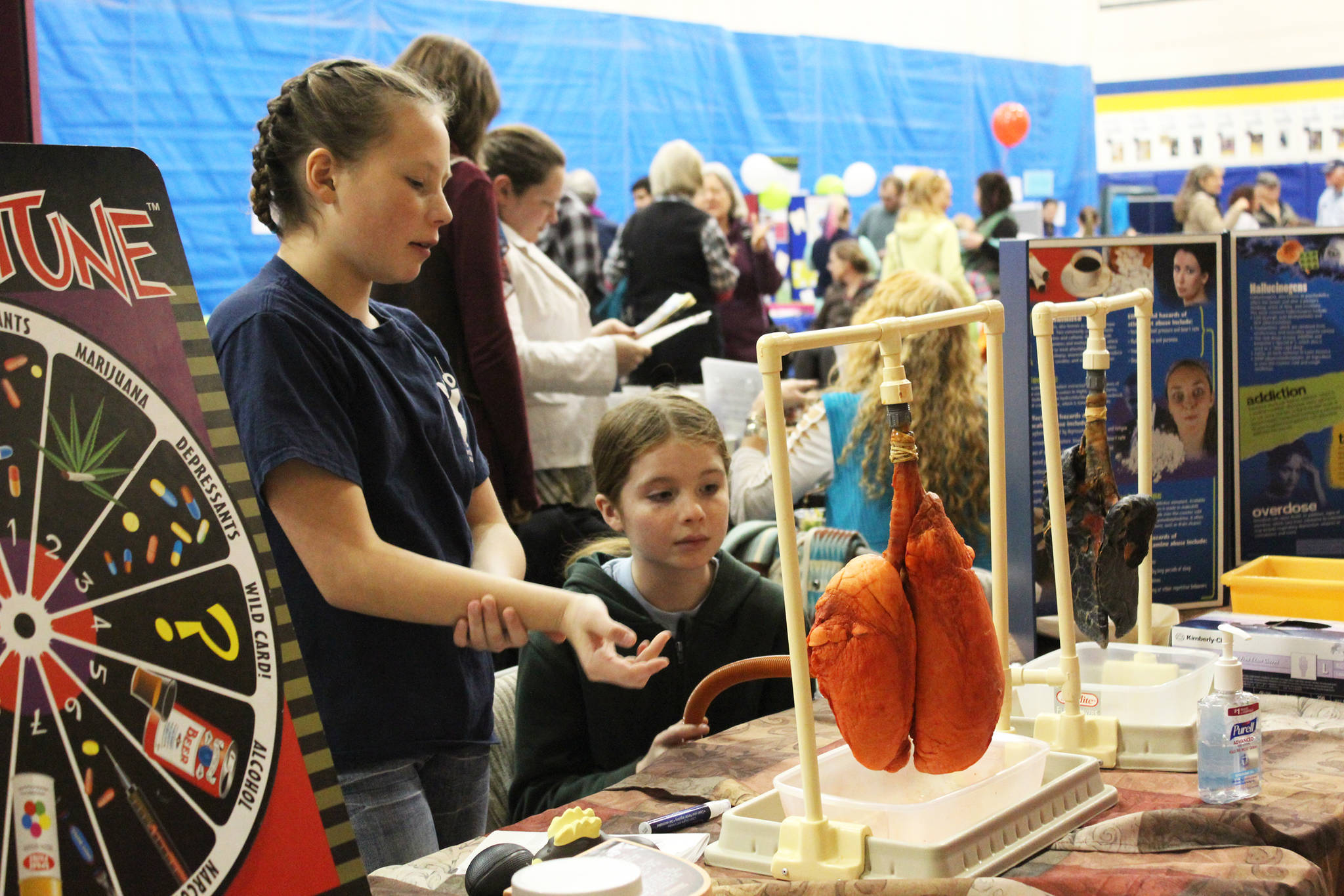From free eye screenings to the dangers of smoking and everything in between, no one who attended last Saturday’s Rotary Health Fair had the chance to leave empty handed.
Sponsored by the Homer Kachemak Bay Rotary Club in cooperation with South Peninsula Hospital, the fair is now in its 34th year. More than 70 exhibitors filled the first floor of Homer High School, touting knowledge and giveaways, as the event’s participants — usually around 1,000 people — filed past on their one-stop-shop journey for health.
Jeanette Johnson, of Kachemak Emergency Services, was there representing with information on AEDs and with the department’s new CPR simulators that give real-time feedback on how the person performing CPR is doing. She said KESA representatives were also there to teach people how to become familiar with defibrillators so that they will know how to use one if they ever have to in an emergency.
“It’s an unparalleled opportunity for people to not only help themselves, but help others,” Johnson said. “Because it’s definitely dual purpose. You help yourself by coming here, getting your blood drawn, learning about your own health, but at the same time you’re learning about ways you can help others in your community. There’s nothing else like it.”
Amy Perlinger was one resident who came to learn about a health crisis in her community — opioid addiction — and stayed to have some of her own health factors checked out. She took advantage of the free eye exams being given out by the Kachemak Bay Lions.
Perlinger said it’s hard to go to the fair for just one thing, and that the exhibitors don’t let people simply walk by their booths without engaging them.
“I think it’s really fantastic that they offer the blood draw test, because I don’t have health insurance and I don’t really love doctors, but the idea of just having some knowledge that maybe everything is OK or not, gives me a lot of peace of mind,” she said.
Perlinger said the main reason she attended was to hear one of Dr. Sarah Spencer’s presentations about opioid addiction. Spencer, a family medicine doctor and addiction specialist, gave a talk on the science of addiction as well as one about recognizing an overdose and using the overdose reversing drug Naloxone.
“I’ve had friends who struggle with addiction,” Perlinger said. “I’ve had addiction issues in my own life, and then ultimately I’d like to become an addictions counselor. … And I really admire everything she (Spencer) does in our community with the opioid epidemic and whatnot.”
One part of the health fair is guaranteed to be different next year: the fair’s main organizer for the past decade, Sharon Minsch, served in that capacity for the last time this year and is stepping down. She was honored at the fair with flowers and a presentation.
“Eleven years ago, I didn’t know what a health fair was, and now I am one,” she said of her experience organizing the event.
Minsch said the a major benefit of the fair is that it provides the affordable blood tests to about 1,000 people each year. She also commended the many exhibitors who take a Saturday to come educate the public about their various services.
“Every year we have 1,000 people through that door who come to see these exhibitors and learn about what’s new,” Minsch said. “…It’s huge for this community. We have so many people who don’t have insurance and don’t have access to things.”


